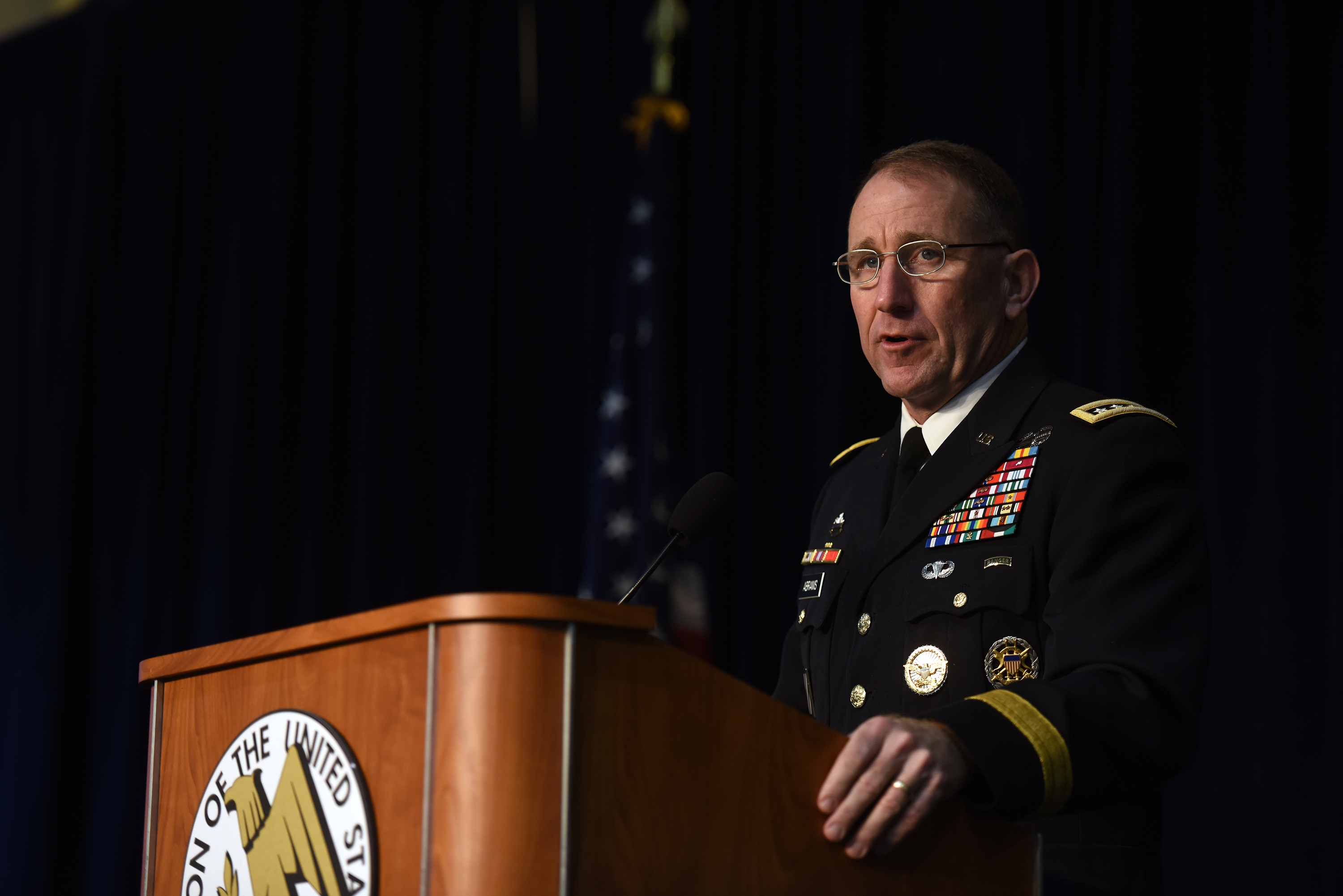
Senate Armed Services Committee members expressed concerns over the Trump administration’s position on military exercises and U.S. troop presence South Korea in exchange for vague promises from Pyongyang about denuclearization during a confirmation hearing for the top U.S. military officer in Korea.
“The suspension of the exercise this past August and September I would say was a prudent risk if we’re willing to make the effort to change the relationship” with Pyongyang, nominee Army Gen. Robert Abrams said. He regarded the step as one of building trust and confidence between the two governments.
At the same time, he acknowledged a “slight degradation” of the “fight tonight” capabilities of the combined forces with the cancellation. He added in answer to a later question that planning was set to resume these large-scale exercises this spring and smaller staff-level and smaller unit exercises continue.
“Exercises that are scheduled for the spring, the major exercises, to the best of my knowledge, they are proceeding with planning,” Abrams said. “That is a future decision to be made by alliance leaders.” He said earlier that large-scale exercises are needed to establish better operability and continuity in planning and operations of joint and combined forces.
As to pulling American forces off the peninsula, Abrams tried several times to deflect the question saying it was hypothetical. Sen. Dan Sullivan (R-Alaska) kept pressing for an answer saying that President Donald Trump has publicly said that such a move was possible. He also noted that the Pentagon had not been given a heads-up of the cancellation of the joint exercises that the president termed as costly, provocative war games.
Abrams finally said, “There would be a significant amount of risk” if U.S. forces were pulled out without the North Koreans drawing down their conventional forces. As to Russia and China’s views on such American move, he added, “both would strongly encourage it.”
Earlier, he said that even if North and South Korea signed a peace treaty, that did not mean that U.S. or forces from 16 other countries under U.N. control would leave. The existing armistice is between Pyongyang and the U.N. Security Council.
In assessing the conventional threat, Abrams noted North Korea has the fourth largest army in the world with strong artillery and armor, as well as cyber capabilities.
Abrams also said North Korea still had significant capabilities and the United States should remain “clear-eyed” about the “significant asymmetric and intercontinental threat.”
The United States has around 28,500 service members, primarily soldiers and airmen, stationed in South Korea.
Under Army Gen. Vincent Brooks, Abrams said that a number of logistical challenges on the peninsula have been addressed, particularly in the pre-positioning of equipment and supplies there for follow-on Army and Marine Corps forces arriving in response to a crisis. In addition, the positioning of Theater High Altitude Area Defense missile system in Korea has improved that aspect of security, but more work is needed on integrating that system with air defense systems in Japan.
“Things have settled down” over the stationing of THAAD among the Korean civilian population particularly after Pyongyang’s last missile test and complaints from China that the system was designed against its missiles have fallen off, he added.
Whether Kim Jong-un would use chemical weapons in any attack on the south, Abrams said that was “completely unpredictable,” but noted that in his present position as the senior officer in Forces Command, all components, are trained continually in biochemical defense.
In Korea, “our role is to be prepared for all contingencies” and there is “adequate capability on the ground to deal with initial use.”
Since Seoul is so close to the Demilitarized Zone, Brooks also worked on improving plans on how to handle civilian evacuations — not only of Americans — in case of an invasion from the north “to the best of our abilities,” he added in answer to a series of questions. “This is a wicked problem.”





